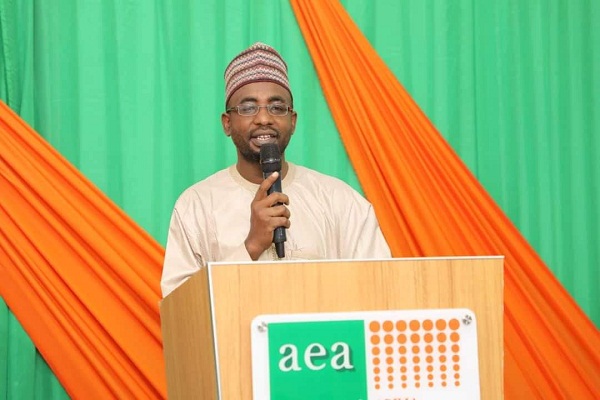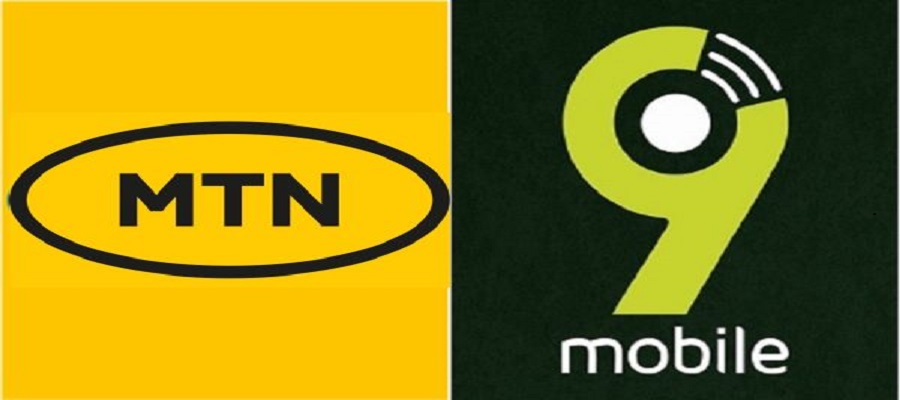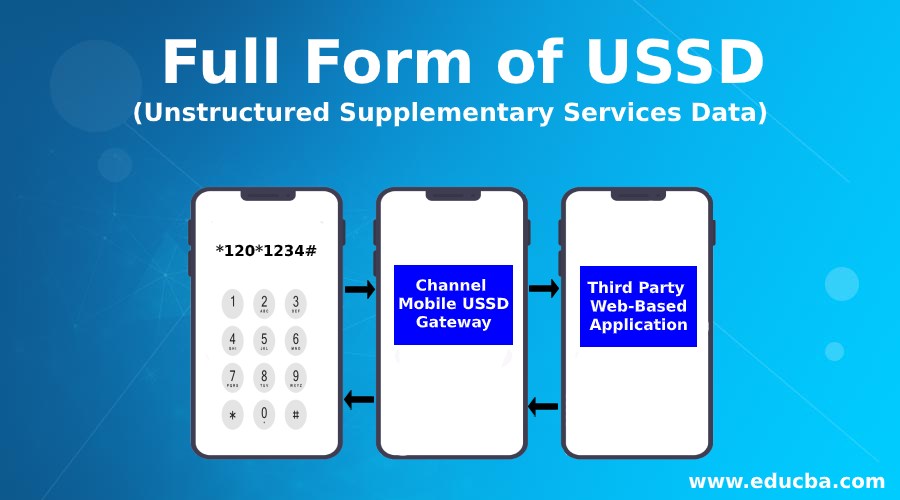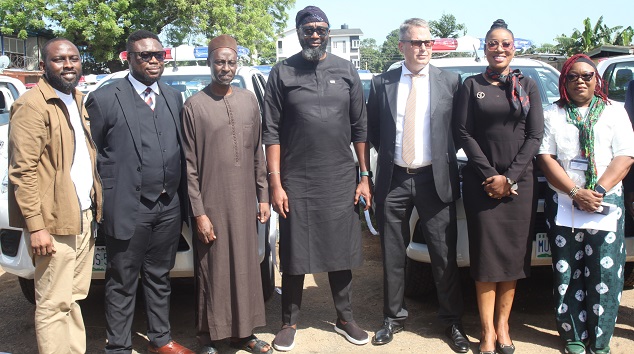Telecom
NITDA Urges Computer Manufacturers to Improve Quality & After-sales-Support

Mallam KashifuInuwa Abdullahi, director-general, National Information Technology Development Agency (NITDA) has called on the Certified Computer Manufacturers of Nigeria (CCMON) to improve in quality and synergy to ensure devices meet the minimum requirements and that OEMs ensure sufficient after-sales-support of these devices.
The DG made this call during a virtual meeting held between National Information Technology Development Agency (NITDA) and Certified Computer Manufacturers of Nigeria (CCMON) to discuss issues affecting the increasing adoption of indigenously assembled devices in Nigeria and possible ways of moving the country’s ICT hardware sub sector of the economy forward through adequate implementation of local content policy.
Mallam Abdullahi in his welcome remarks commended CCMON for its partnership with NITDA as a critical stakeholder for Nigerian Content Development in ICT, he however encouraged them to be competitive in terms of price and to also set their target as the public and not just government.
The DG also directed that a joint committee be created between CCMON and NITDA to ensure all concerns are addressed and a strategic direction agreed. The committee will be chaired by the National Coordinator of the Office for Nigerian Content Development in ICT (ONC) and will submit its committee report in a month for consideration and action by the Agency
Earlier, Engr Adenike Abudu, president of CCMON while speaking during the meeting noted that comparative patronage of Nigerian OEMs was relatively low and that investments made by Indigenous OEMs was still underutilized, adding that several Government Agencies still did not patronize Indigenous OEMs as required by the Guidelines for Nigerian Content and Executive Orders 003 of the President.
She however, identified gaps in communication between NITDA and association, noting that there is a need to improve communication between NITDA and the association.
She said the purpose of the meeting was to see how they can partner with NITDA to ensure implementation of policies that will help OEMs to thrive, OEMs being in business in turn retains and creates more jobs, she said.
In his response, Barr Kasim Sodangi, the National coordinator Office for Nigerian Content (ONC), said that NITDA has been engaging MDAs through the IT project clearance channel and has mandated a lot of purchases of OEMs.
He said the challenges are, NITDA cannot be everywhere, but NITDA has insisted that IT procurements should state that preference must be given to indigenous manufacturers, which is the content of Executive order 003.
Responding to issues raised by association on poor sales the NC admonished OEMs to do their marketing and promote their products as he mentioned that MDAs buying in trickles has led to the conversation on where do we go on aggregation.
Reacting to what Sodangi said, CCMON explained that the issue of specification is complex because the components of hardware are the same. The only difference is the processor and there over 10 different type of processors. And because of the capacity of the OEMs it is not possible to stock up one type of processors so they work with the requested specifications at every given time.
Further discussions were held on the certification requirements of NITDA, quality of devices, stock availability, after-sales-support, the need for a streamlined specification of devices and the need to deepen business development and marketing
Telecom
9mobile Nigeria Inks Agreement to Roam with MTN

9mobile, Nigerian operator, has reportedly gained approval for roaming on the MTN Nigeria network in a deal that some commentators suggest could improve its position in the market and, more specifically, tempt back lost subscribers.

After finally gaining regulatory approval from the Nigerian Communications Commission (NCC), 9mobile plans to launch national roaming services on the MTN network from this month.
Under the agreement, 9mobile subscribers will gain access to MTN’s infrastructure for calls, texts and data in areas where 9mobile’s coverage is weak or unavailable.
For 9mobile, the deal offers a cost-effective way to expand coverage without the heavy investment required for nationwide infrastructure.
According to ITWeb Africa, the decision comes nearly five years after initial discussions – much longer than expected due, the Techloy news service said, to regulatory bottlenecks, shifting market conditions, and unclear execution timelines.
It may, however, prove pivotal for 9mobile, whose market share has dwindled to 1.72% in April 2025, down from 6.6% in 2020 when the proposal was first submitted. Indeed, in 2015 the company once known as Etisalat Nigeria had over 23 million subscribers and a 15.7% market share.
Of course, there’s also something in this for MTN. In exchange for network access, MTN gains utilisation rights to 9mobile’s underused spectrum in the 900MHz, 1800MHz, and 2100MHz bands – key frequencies for expanding coverage and improving data capacity.
For MTN, which serves over 84 million subscribers, this additional spectrum could reduce congestion and improve service quality.
The company has also had financial difficulties in the Nigerian market due to the naira’s substantial depreciation; this deal could support better service provision at a reduced cost.
That said, MTN Nigeria’s results for the first quarter to March 31 2025 were apparently much improved, and the company recently announced a massive capital expenditure drive for 2025 of some NGN900 billion (US$568.5 million) as it seeks to significantly enhance network service quality in major cities like Lagos and Abuja and extend improvements to other areas.
Telecom
Banks, Telcos to Start Deducting USSD Charges from Airtime Today

Banks and telecom companies will begin deducting USSD banking charges directly from customers’ airtime instead of their bank accounts beginning from today, June 3.

USSD, otherwise Unstructured Supplementary Service Data, is a communications protocol used by GSM cellular telephones to interact with a mobile network operator’s computers.
First City Monument Bank (FCMB) announced this change in an e-mail message to customers, following a directive from the Nigerian Communications Commission (NCC).
Key details:
Each USSD session will cost ₦6.98 per 120 seconds, charged by your mobile network.
You will be asked to approve the charge before it’s deducted from your airtime.
If you prefer, you can use other banking channels like ATMs, mobile apps, or internet banking.
This change is part of a move to end the long-standing debt dispute between banks and telecoms over unpaid USSD fees.
As of late 2024, banks owed telecom companies ₦160 billion. For example, MTN was owed ₦42 billion by Nigerian banks.
By shifting USSD fees to customers’ airtime, the telcos aim to recover these debts and avoid future issues.
Telecom
IHS Nigeria Moves to Enhance G4S Secure Solutions Site Patrols and Increase Operational Efficiency with Patrol Vehicles

IHS Nigeria, a subsidiary of IHS Holding Limited and one of the largest independent owners, operators, and developers of shared telecommunications infrastructure in the world by tower count, has formally commissioned 65 Response, Patrol, and Escort (RPE) vehicles to G4S Secure Solutions Nigeria Limited, its long-standing security partner.

The commissioning ceremony which held in Ikeja GRA, Lagos, underscores IHS Nigeria’s commitment to operational excellence, safety, and strategic partnerships.
The fully equipped vehicles, customized with radio systems, public address systems, medical kits, ladders, and amber lights, are expected to significantly enhance G4S’s patrol capabilities and enable proactive risk mitigation across IHS Nigeria’s infrastructure footprint in the country.
Speaking at the event, Jubril Saba, Vice President, Operations at IHS Nigeria, remarked: “IHS Nigeria is delighted to formally hand over these Response, Patrol and Escort (RPE) vehicles to our valued security partner, G4S Secure Solutions Nigeria Limited. As a company, we recognize that the success of our operations lies not only in our technology and infrastructure but also in the strength of the partnerships we build and sustain.
G4S has been an essential partner in protecting our sites, supporting our teams, and ensuring operational continuity across the country. This initiative is more than just a commissioning of vehicles; it is a reaffirmation of our commitment to the safety of our people and assets, our drive for operational excellence, and our belief in strong partnerships.
We understand that securing our infrastructure and communities is critical to sustaining high-quality services nationwide, and we are confident this fleet will enhance G4S’s capacity to support us.”
Also speaking at the event, Jonas Ahl, Managing Director of G4S Secure Solutions Nigeria Limited, expressed his appreciation for the partnership:
“We are proud to receive these 65 custom-built patrol vehicles from IHS Nigeria. Each unit is fully outfitted to meet the specific security needs of our operations, equipped with communication systems, emergency response tools, and visibility-enhancing features. These vehicles will not only improve our response times and field presence but also enable us to reduce risk and deter criminal activity more effectively.
I would like to thank the IHS team for their excellent collaboration throughout this project. We are proud to serve IHS and remain committed to protecting the assets that power connectivity across Nigeria.”
This strategic gesture reinforces IHS Nigeria’s position as a socially responsible and security-conscious industry leader, while highlighting the value of operational synergy with trusted partners like G4S.
The deployment of these vehicles marks another milestone in IHS’s mission to secure its infrastructure and deliver uninterrupted service to millions of users across the country.

 E-Business2 days ago
E-Business2 days agoFarmers to Get Identity Card for Loans, Inputs

 Telecom2 days ago
Telecom2 days agoARCON Probes 9mobile over Alleged N1Bn Advertising Debt

 News2 days ago
News2 days agoSERAP Sues NNPC over Alleged Missing ₦500Bn, Seeks Accountability

 News2 days ago
News2 days agoFirst Asset Management Receives 2024 Fund Manager Award

 E-Business2 days ago
E-Business2 days agoDyna.Ai Launches Operations in Nigeria

 General News2 days ago
General News2 days agoNigeria Relaunches National Talent Export Programme to Unlock $1 Trillion Global Outsourcing Market

 Telecom2 days ago
Telecom2 days agoNiRA Holds 17th AGM, Elects New Leadership to Propel .ng Domain Growth

 News2 days ago
News2 days agoIkeja Computer Village Begins Biometrics Registration to Tackle Crime


























